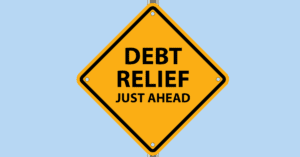Introduction
An overwhelming amount of information is at your fingertips these days. When finding a solution for your debts is better to go with credit counselling or a different option? As a licensed insolvency trustee, I’ve seen firsthand how the right strategy can turn financial despair into manageable solutions. In this article, we’ll explore the ins and outs of credit counselling and consumer proposals, helping you understand why, for many Canadians, consumer proposals often emerge as the clear winner. Let’s dive into these options and find your path to financial freedom.
Understanding Credit Counselling
What is Credit Counselling?
Credit counselling is often the first beacon of hope for those struggling with debt. It involves working with a credit counsellor who provides budgeting advice and can negotiate a debt management plan with your creditors. This plan usually involves consolidating your debts into one monthly payment.
Pros and Cons
Credit counselling can help you to simplify your payments and provide valuable financial education. However, the debt management plan they can offer is not a one-size-fits-all solution. A debt management plan does not reduce the total amount of debt you owe, it is not legally binding on your creditors, and not all types of debts can be included in these plans.
Ideal Candidates for Credit Counselling
If your debt is relatively manageable and you need guidance on budgeting and financial management, credit counselling and possibly a debt management plan could be your answer.
Exploring Consumer Proposals
What is a Consumer Proposal?
A consumer proposal is a legally binding agreement facilitated by a licensed insolvency trustee, like myself, between you and your creditors. It allows you to pay back a portion of your debt over a period of up to five years.
Key Benefits
- Legally Binding: Once filed, a consumer proposal stops collection calls and wage garnishments. All creditors are bound to an approved consumer proposal, even if they voted against it.
- Debt Reduction: Often, you’ll pay back less than the total amount owed, with lower monthly payments.
- Asset Protection: Unlike bankruptcy, a consumer proposal does not usually impact your assets.
- Credit Rebuilding: We’ll work together on strategies to rebuild your credit during the proposal period.
Consumer Proposal vs. Bankruptcy
While bankruptcy also offers debt relief and a fresh start, a consumer proposal has less impact on your credit report and allows more control over your assets.
Ideal Candidates
Those with a stable income who owe less than $250,000 (excluding the mortgage on their primary residence) are ideal candidates for consumer proposals.
The Role of Licensed Insolvency Trustees
As licensed insolvency trustees, we are federally regulated professionals who provide advice and services on debt relief options. We play a crucial role in facilitating consumer proposals and can also offer credit counselling services. Our goal is to help you navigate the complexities of debt relief and find the best solution for your unique situation.
Consumer Proposals vs. Credit Counselling Debt Management Plans
A Detailed Comparison Impact on Credit Score
Both options will impact your credit score in a similar way, but a credit counselling-based debt management plan will not reduce your payments.
Duration and Legal Protection
A consumer proposal typically lasts up to five years and offers immediate legal protection from creditors. Credit counselling-based debt management plans, on the other hand, cannot stop a garnishment order against your wages, and cannot force creditors to co-operate the way a consumer proposal can.
Financial Relief
A consumer proposal can significantly reduce the amount you owe. While a credit counselling-based debt management plan allows you to manage your repayments to your creditors, it does not offer any relief from your debts.
Case Studies
Consider Alma and Donovan, who each owed $25,000 to 4 credit cards and 3 payday lenders. Alma filed a consumer proposal for $250 per month, which reduced her debt by 40%.Donovan filed a debt management plan for $380 per month, which covered most of the $25,000 he owed, except he also had to pay $2,200 to two payday lenders who refused to participate. Donovan struggled to keep up with his credit counselling debt management plan payments. At the end of 5 years, Alma had paid $15,000 to clear her debt, and managed to build savings during that time. Donovan had paid $25,000, with no savings. Their stories highlight some practical realities of each option.
Rebuilding Credit During a Consumer Proposal
Strategies for Credit Rebuilding
During a consumer proposal, we’ll work on strategies like obtaining a secured credit card and managing small loans. These steps are crucial in rebuilding your credit score.
Long-term Benefits
Successfully completing a consumer proposal and following credit rebuilding strategies can set you on a path to a healthier financial future.
Conclusion
Navigating debt relief options can be daunting, but understanding the differences between credit counselling and consumer proposals is a significant first step. As a licensed insolvency trustee, I encourage you to consider all your options, especially the often-overlooked consumer proposal. Remember, the path to financial stability is unique for everyone, and seeking professional advice is key to finding your way out of debt.




